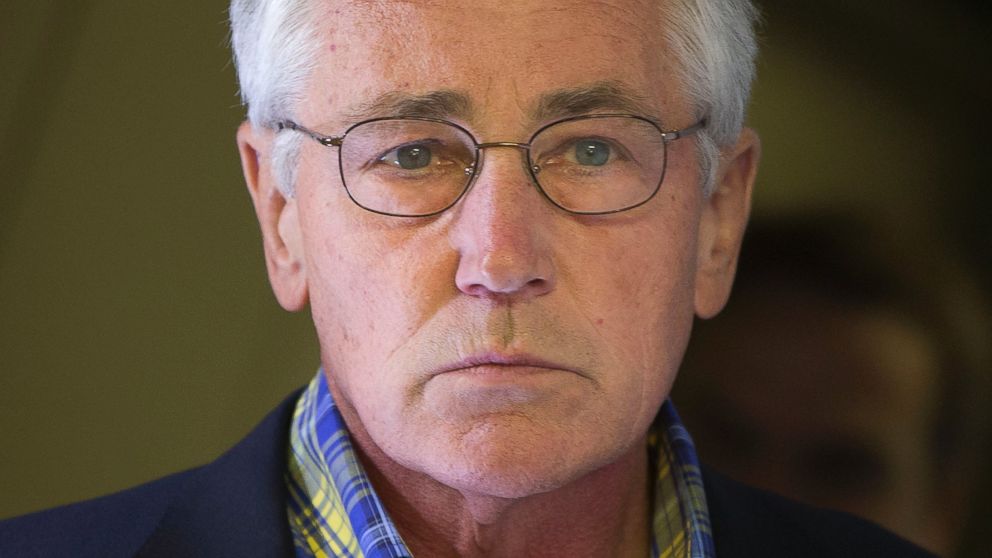Hagel Says White House Disagreed With His Slow Pace of Releases of Guantanamo Detainees
Ground troops in Iraq "could be necessary," says Defense secretary.

— -- Outgoing Defense Secretary Chuck Hagel acknowledged Friday for the first time that some officials in the White House disagreed with his slow pace in releasing Guantanamo detainees. He explained he was cautious because he took "very seriously" his responsibility to certify the release of detainees to ensure they did not return to the battlefield.
"Not everyone at the White House has agreed with how I’ve handled some of this,” Hagel told CNN in an interview aired Friday.
“I have made it very clear that I will not certify -- sign anything -- to release a detainee as long as I’m secretary of Defense unless I am convinced that it is in the best interest of this country. And a substantial mitigation of risk can be verified, as closely as we can verify it.”
“Not everyone at the White House has agreed with me,” he said. "Probably on the pace of releases" from the detainee facility at Guantanamo, Cuba. He said, "We’ve had a lot of conversations" with the White House, the Congress and in the press.
There are currently 122 detainees at the detention facility at Guantanamo. In 2014, 33 detainees were transferred out of Guantanamo, but the overwhelming majority of those transfers occurred in November and December. Prior to November only six detainees had been transferred out of the facility including the five Taliban leaders sent to Qatar in exchange for the release of Sgt. Bowe Bergdahl, who had been held by the Taliban for five years.
The Defense secretary affirmed Friday that the exchange for Bergdahl was the right call. "Absolutely, it was the right decision," said Hagel.
“I have the responsibility and I play my own game here,” Hagel explained. "Because by law I am the one official in government charged with certification of releasing detainees. I take that responsibility very seriously.”
He also acknowledged that the idea of White House pressure over the pace of releases did not worry him.
“I’ve been in this town a long time,” said Hagel. “And there’s pressure all the time in every job, they come from a lot of different directions. If you’re not prepared to deal with pressure every day, in the job you’re in -- coming from a lot of different directions -- then you shouldn’t be in the job.”
Hagel also told CNN that "it could be necessary" that in the future some American troops may have to serve alongside Iraqi troops to help call in airstrikes against ISIS targets. His comments are in line with those of Gen. Martin Dempsey, chairman of the Joint Chiefs of Staff, and Gen. Lloyd Austin, commander of U.S. Central Command, who have said previously that future complex operations like an offensive to retake Mosul might require the presence of U.S. forward air controllers.
“I think it may require a forward deployment of some of our troops,” said Hagel. “Not doing the fighting. Not doing the combat work that we did at one time for six years in Iraq. We did for many many years in Afghanistan. But to help airstrike precision... locate. Those are things where we could continue support.”
“It could be necessary," Hagel said. "It could be, but I’m not willing to say that it will be necessary.”
He stressed that "whether we get there or not, I don’t know whether that’s something our military commanders recommend into the future, I don’t know."
Hagel said that President Obama has told both Gen. Dempsey and Gen. Austin to not hesitate in approaching him if they feel new military options are needed in the fight against ISIS in Iraq and Syria.
But Hagel said that so far, that has not happened.




